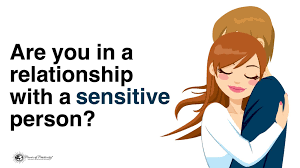歡迎您加入 英文/知識/交友 文章請點選欄位
周六(11/3) 1.高敏感人 是福是禍? 2.無家可歸的人
上午10:47
No comments
板橋區文化路一段421巷11弄1號 (陽光甜味咖啡館)
新埔捷運站1號出口 旁邊7-11巷子進入20公尺 看到夏朵美髮左轉 星期六 聚會時間為下午4:00-6:00


高敏感人 是福是禍?
The Pros and Cons of Being a Highly Sensitive Person - The Daily Mind
By Marisol February 26, 2018
Pros
1. They make more thoughtful partners, friends, neighbors, and co-workers.
The highly sensitive person is more aware of subtleties and nuances in another person’s behavior. They can detect discomfort or distress and will find ways to make that person feel more at ease. Their caring and compassionate nature make them mindful of their behavior to avoid offending others.
2. They are meticulous and thorough, and pay extra attention to details.
This highly sensitive person trait is valuable in the right situation. Being detail-oriented delivers products done to the highest standards which is pleasing to clients. It also leads to higher efficiency, eliminating the need to revise sloppy work that wastes time and other resources.
3. They are more creative.
Highly sensitive persons have vivid imagination and respond more intensely to stimuli. They see the world through a larger lens. Many artists, authors, songwriters, and people in the performing arts are highly sensitive and creative, giving them the gift to touch people with their work.
4. They have superb communication skills.
HSPs are deeply perceptive and attuned to other people’s messages, not only in their spoken words but also in their gestures and tone. This sensitivity forges more open exchange of thoughts and ideas.
5. They make good team members.
Their understanding of the feelings of other team members make them think through all aspects of a decision. Being naturally fastidious, they see hidden aspects of a new project or policy that may have been missed by the other team members.
Cons:
1. They are more prone to anxiety, depression, sleeping disorders, and physical conditions if they cannot control their intense negative reactions to a situation or thing.
2. Their extreme sensitivity make relationships strained and difficult because they are easily hurt or angered. A harmless statement becomes an insult, and a mild reprimand is seen as strong criticism.
3. They get quickly overwhelmed if given simultaneous tasks and become less productive.
4. They cannot make quick decisions. They have to think over every detail in a discussion and ultimately take longer to decide.
5. They suffer from emotional deprivation. Their powerful sensitivity and innate reaction to care for other people demands self-sacrifice, leaving them emotionally deprived and empty.
無家可歸的人
What do Australians really think of homeless people?
By Emily Nicol sbs.com.au
Today, more than 100,000 Australians are currently homeless and exist day-to-day without a permanent home.
In major cities, such as Melbourne, the number of rough sleepers on the city’s streets has increased by almost 75 per cent in the past two years.
These statistics are significant. But, does anyone really care about the plight of the homeless?
According to a 2015 Salvation Army Poll, four in 10 Australians think that the homeless are ‘lazy freeloaders’, ‘stupid failures’ or ‘not working hard enough’.
These might seem like easy conclusions to those of us who have never experienced the plight of being homeless and the devastating repercussions.
"The process of becoming homeless is traumatic in itself, and with that comes particular behaviours, reactions and high stress situations.”
“If I was homeless every piece of money I’d make, I’d try and find a job, buy some nice clothes, do something to get myself off there” is one conclusion offered by 'Filthy Rich and Homeless' participant, Kayla Fenech, at the outset of appearing on a new TV series exploring the issue. Her comments reveal a broad but common misconception that finding a way out of homelessness is just a matter of simply trying harder.
When describing a typical client, Kerri-Anne Williams, who works at two critical support services through St Vincent De Paul, tells SBS that these kind of negative opinions couldn’t be farther from the truth.
“The clients that I work with are probably the hardest workers that I’ve come across,” says Williams. “It may not be in the traditional sense of working 9-5, but in terms of trying to navigate systems, trying to find employment, attending countless appointments, managing health issues and looking after children - while living in crisis, I don’t think there’s ever any chance to rest.”
“One of the biggest issues is being able to get out of homelessness once you are in it.”
Williams describes the challenge to get back on your feet once becoming homeless, as being incredibly tough with red tape impeding the services that should be there to provide support. “One of the biggest issues is being able to get out of homelessness once you are in it.”
The damage to self-esteem and the disconnection from society can have devastating consequences. “The process of becoming homeless is traumatic in itself, and with that comes particular behaviours, reactions and high stress situations.”
This compounded trauma can impact some in worse ways than others. Around half of all rough sleepers in Australia are dependent on drugs and/or alcohol, but two-thirds develop these habits after becoming homeless.
Lack of affordable housing is a major factor driving the rise in homelessness, says Adam Robinson, CEO of StreetSmart – an organisation committed to taking action against homelessness.
“In Australia finding affordable housing is a huge challenge,” says Robinson.
訂閱:
張貼留言 (Atom)


















0 意見:
張貼留言